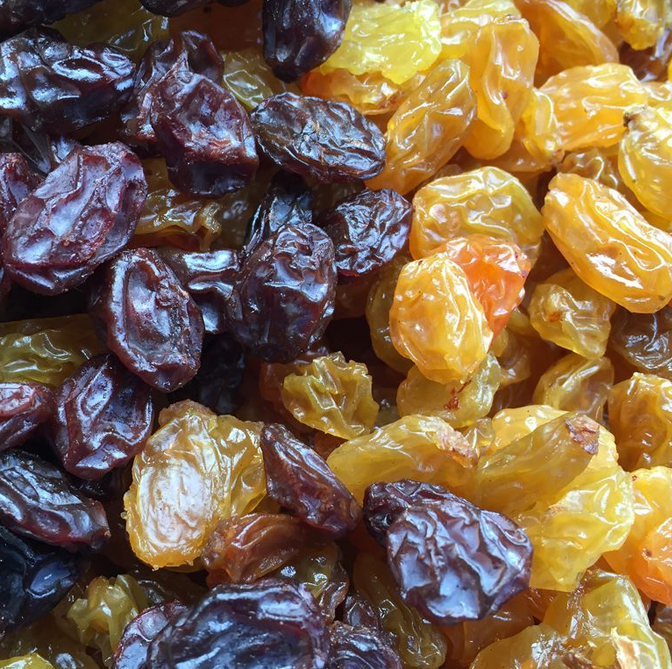
Dried fruit is fruit from which the majority of the original water content has been removed either naturally, through sun drying, or through the use of specialized dryers or dehydrators. Dried fruit has a long tradition of use dating back to the fourth millennium BC in Mesopotamia, and is prized because of its sweet taste, nutritive value, and long shelf life.
Today, dried fruit consumption is widespread. Nearly half of the dried fruits sold are raisins, followed by dates, prunes, figs, apricots, peaches, apples and pears. These are referred to as “conventional” or “traditional” dried fruits: fruits that have been dried in the sun or in heated wind tunnel dryers. Many fruits such as cranberries, blueberries, cherries, strawberries and mango are infused with a sweetener (e.g. sucrose syrup) prior to drying. Some products sold as dried fruit, like papaya, kiwi fruit and pineapple are most often candied fruit.
Dried fruits retain most of the nutritional value of fresh fruits. The specific nutrient content of the different dried fruits reflects their fresh counterpart and the processing method. In general, all dried fruits provide essential nutrients and an array of health protective bioactive ingredients, making them valuable tools to both increase diet quality and help reduce the risk of chronic disease.
Raisin
A Raisin is a dried grape. Raisins are produced in many regions of the world and may be eaten raw or used in cooking, baking and brewing. The word “raisin” is reserved for the dark-coloured dried large grape, with “sultana” being a golden-coloured dried grape, and “currant” being a dried small Black Corinth grape. Raisin varieties depend on the type of grape used, and are made in a variety of sizes and colors including green, black, blue, purple and yellow. Seedless varieties include the sultana (also known as Thompson Seedless in the USA) and Flame grapes. Raisins are traditionally sun-dried, but may also be water-dipped and artificially dehydrated. “Golden raisins” (called “sultanas” outside the US) are made from the sultana grape, treated with sulfur dioxide to maintain their golden color, and dried either on the vine or on special drying racks.
Black Corinth or Zante currant are miniature raisins that are much darker in color and have a tart, tangy flavor. They are often called currants.
Raisins can contain up to 72% sugars by weight,most of which is fructose and glucose. They also contain about 3% protein and 3.7%-6.8% dietary fiber. Raisins, like prunes and apricots, are also high in certain antioxidants, but have a lower vitamin C content than fresh grapes. Raisins are low in sodium and contain no cholesterol

Product Specifications
Commodity: Raisins
Variety: Raisins of types : Golden yellow, Sultana-Brown, Sultana-Black, Green
Grade: AAA, AA, A
Origin: Tamil Nadu or Gujarat, India
Packing & Shipment Specifications
Inspection: SGS (or) any other agency as per your requirement for Weight and Quality.
Packing: Standard in 10 Kg or 12.5 Kg PP Bags in Carton Box
Quantity: 20 feet Container with load ability of 18 Tons
Port of Loading: Chennai or Cochin, India
Port of Discharge: As per customer requirements
Delivery: Delivered to the loading port of choice within 15 days from the date of receipt of Confirmed Purchase Order & Receipt of Advance.
Applicable Shipment Terms: FOB/CFR/CIF Inco Terms 2010 as needed by the Customer to their port of choice
Quality Specifications
- Maximum occurrence of gravel or sand: 1 piece per 10kg
- Maximum moisture content: 16%
- Maximum nitrate sulfur (for golden): 2/1000
- Maximum unclean raisins: 5%
- Maximum verminous raisins: 3%
- Maximum other kinds and forms: 1%
- Maximum raisins with stems: 10%
- Maximum length of bunches: 5cm/1kg
- Maximum crushed or damaged raisins: 5%